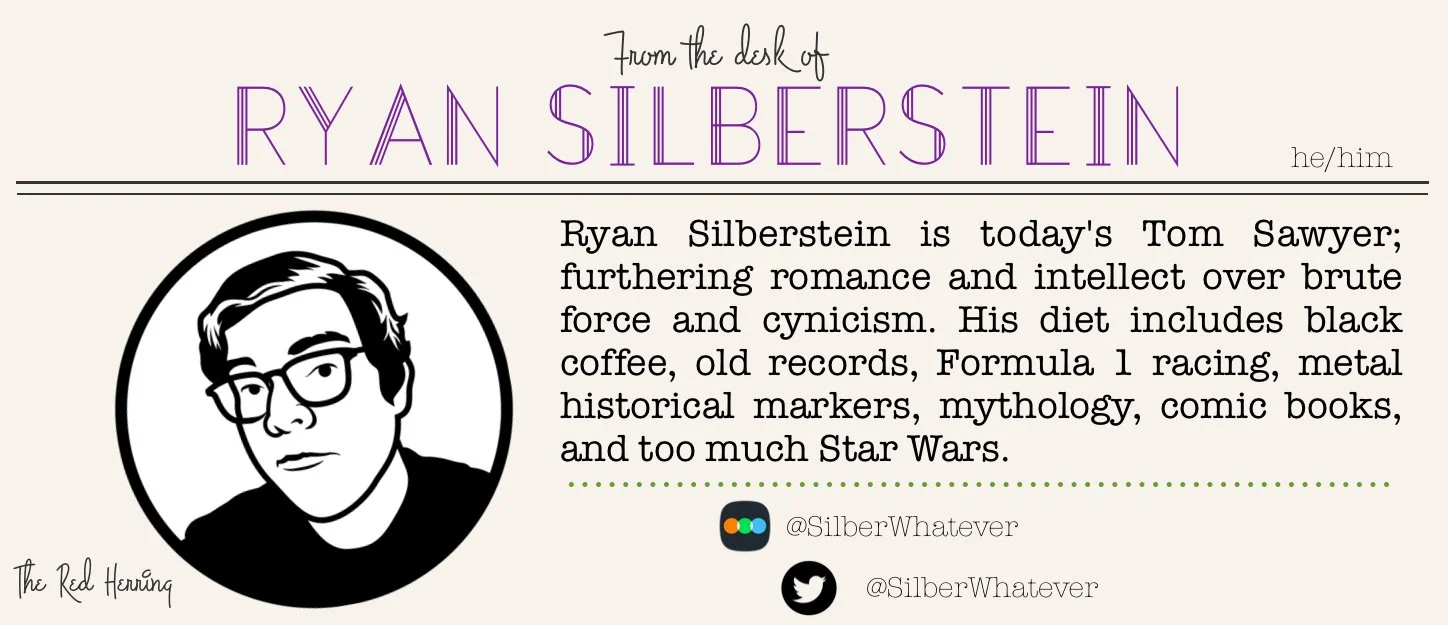GLADIATOR II is a spectacle-driven long gap sequel with an incredible Denzel performance
Gladiator II
Directed by Ridley Scott
Written by David Scarpa
Starring Paul Mescal, Denzel Washington, Pedro Pascal, Connie Nielson
Rated R
Runtime: 2 hours, 28 minutes
In theaters November 22
by Ryan Silberstein, Managing Editor, Red Herring
“Are you not entertained? Are you not entertained? Is this not why you are here?” Maximus (Russell Crowe) asked the crowd, in one of the most iconic moments of the original Gladiator, which went on to win five Academy Awards, including Best Picture. It’s a question that feels like it could have come from the mouth of director Ridley Scott himself. While the auteur certainly has his share of iconic masterpieces–Alien (1979), Blade Runner (1982), Thelma & Louise (1991)–he has never slowed down and has not had a gap of more than four years between releases of his films going back to his first feature in 1977. Scott’s work ranges from contemporary action to historical epic to crime thriller to science fiction. However, in his movies from this decade–The Last Duel (2021), House of Gucci (2021), Napoleon (2022)–Scott has been preoccupied with the notion of power, especially in our current era of an ever-widening wealth gap.
Like the original film, Gladiator II places itself in the shadow of Marcus Aurelius, the last of the colloquially known “Five Good Emperors” of Rome. Jumping forward a few years, the film opens with a Roman army, led by General Acacius (Pedro Pascal) conquering Numidia. During the siege, Lucius (Paul Mescal)–son of Russell Crowe’s Maximus from the first film and living under the name Hanno–is incidentally taken as a slave. After impressing Macrinus (Denzel Washington), the former slave turned arms dealer and gladiator manager/promoter promises Lucius a chance at revenge against Acacius should the young fighter find success in the arena. Meanwhile, Lucilla (Connie Nielson), now married to Acacius, navigates the uncertainty and bloodthirsty decadence of Rome under Emperors Geta (Joseph Quinn) and Caracalla (Fred Hechinger).
Gladiator II ping-pongs back and forth between spectacle-driven action (Scott is better at depicting siege warfare than any other director, save Peter Jackson) and political intrigue. The action aspects of the film are absolutely enthralling but don’t advance the overall story much. These action scenes do fill in Lucius’ character development as they give him the means to discover more about his father and the “Dream of Rome” described by Marcus Aurelius. While most of the action is contained to the Coliseum, the scale of that action now includes naval battles (with sharks!), rhinoceros riders, and other massive shows of power via government-paid decadence–the ancient Roman equivalent of fighter jet flyovers at football games. This level of display underscores the political realities that Scott is showing in the film’s story.
Rome at this time is run by a pair of comically stupid emperors, the kind of people you could laugh at if they weren’t sitting at the top echelon of state power (just like Napoleon!). On a whim, Geta and Caracalla order Acacius to conquer Persia and India, one of them names a monkey as their first consul, and they genuinely have no idea what is happening in the lives of the common people. Concurrently, Macrinus has internalized what Rome values in practice. Rather than a vague notion of a prosperous republic with the notions of freedom, Macrinus sees Rome for what it truly is: an empire where might makes right, where those in power subjugate and control those below through direct and indirect means. Like Megalopolis, the filmmaker uses Rome as an allegory for America, although unlike Coppola’s epic, Gladiator II is much better at diagnosing the problem than it is offering up a solution to the way America’s wealth and power are being openly consolidated by the wealthy elite.
The most impressive aspect of Gladiator II by far is Washington. While the rest of the cast performs admirably, Washington once again proves the impact of star power. Washington adds a level of gravitas and Shakespearean panache to the entire film. Macrinus is not an especially complicated character, but his use of code switching and political sweet talk showcases Washington’s considerable charisma. Whenever he is on screen, Gladiator II is electrifying and exciting, and his impact on the film is far greater than any of the special effects at play. While he is always an excellent lead actor, it feels so good to luxuriate in a villainous turn from the actor, and his performance here rivals his Macbeth for the right balance of scene-stealing and scenery-chewing.
Gladiator II is far messier and less inspirational than its predecessor. Given the changes in the world political scene since the original Gladiator debuted (released in May, it hit theaters before the election and won Best Picture before 9/11), that makes sense. While it may make for a less complete experience, there are plenty of cinematic delights to be savored within.



